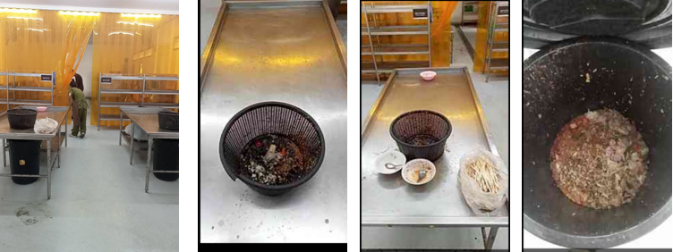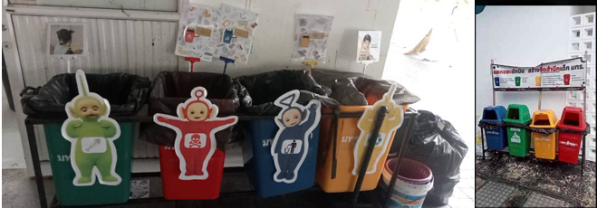In 2024, RMUTL strengthened its commitment to Zero Hunger (SDG 2) through programs that addressed food insecurity and promoted sustainable consumption. The university organized workshops and technology transfer initiatives to support local farmers and food producers, helping enhance product value, market visibility, and community resilience.
Campus Food Waste Tracking
Table 1: RMUTL Food Waste (2019–2024)
| Year | 2019 | 2020 | 2021 | 2022 | 2023 | 2024 |
| Food waste (Tons) | 9.67 | <1 | 4.05 | 9.00 | 9.52 | 9.00 |


In the academic year 2024, the total population at RMUTL consisted of 17,665 people, including 1,972 academic and supporting staff and 15,693 students. The total amount of food waste generated during the year was 9 tons. This corresponds to an average of 0.0005 ton or 5 kilograms of food waste per person per year. Considering that the university operates for approximately 170 days per year (based on two semesters of 17 weeks each and five working days per week), this translates to about 0.029 kilograms or 0.000029 ton of food waste per person per day.
Data collected by the Department of Building and Facility Development show that RMUTL’s food waste trends were shaped by both academic operations and the COVID-19 pandemic. Waste dropped sharply in 2020 during nationwide lockdowns and online learning, then rose again as on-site learning resumed. Overall, hybrid education periods generated less waste—around half the levels of fully on-site years—demonstrating the link between campus activity and food waste generation. These findings highlight RMUTL’s role in promoting responsible food consumption, reducing waste, and supporting sustainable food systems that contribute to a hunger-free future.
